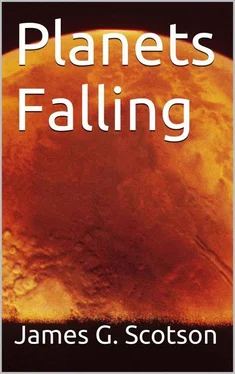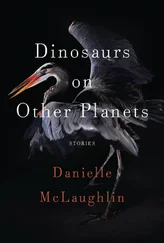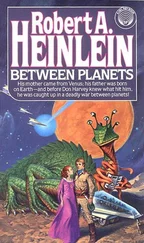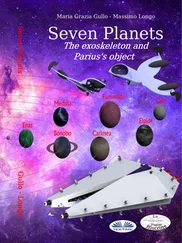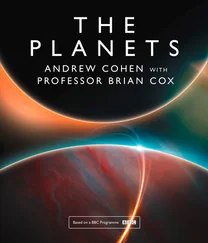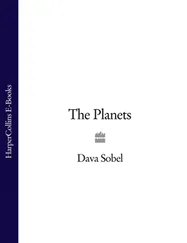He stopped, stared at his toes peeking back at him from his sandals, and sighed. The Platform’s human-machine interface (HM, as in ho-hum) annoyed the spit out of him. HM was more vexing than many of his colleagues — more like a physical manifestation of his conscience, plaguing him at all hours throughout the many decks of the station. From HM, unlike his conscience, there was no escape.
“Ok. I’ll take a bite. Where’s the signal coming from?”
“Orbital Probe 7C. Located at 57 degrees north. Anomalous energy patterns on the surface and subsurface. Not of terra-formed origin.”
“Is it malfunctioning? You better not be wasting my time here. I’m tired and don’t need to do your job for you.”
“Dr. Wilcoxin it is unlikely that it is a malfunction.”
Verat was further irked. “Well, you mechanical nitwit, send probes 6C and 3C over there and bother me when you have confirmed that it is a real thing on the planet and not some burp in the probe. Leave me alone until I get some sleep. When are we finally going to program you things to think on your own?”
As the lift descended, he was followed by the omnipresent voice, “Very well. Probes are being redeployed. Good night, Dr. Wilcoxin.”
The Platform was an organic thing, much like the planets it was built to develop and monitor. The omnipresent Family Collective commissioned it over two hundred years earlier. A ship was always bringing something new and useful to the growing station. Occasionally some obsolete section was being removed or reconditioned. In an apparent but certainly unintentional contradiction, the station was fashioned as a huge cube in space — in angular contrast to the celestial globes to which it was dedicated. The big space cube was not quite planetary in scale — yet. But it was vast by any scale of architecture. Each side of the Platform spanned hundreds of kilometers. It was massive enough to generate its own gravity, which required constant compensation by its fusion reactors. The Platform was at risk of buckling under its own mass.
Surprisingly, the Platform’s complement of sentients, as humans and the three other known intelligent species in the charted galaxy called themselves, was quite light.
Most of the creatures — both organic and artificial — bustling throughout the structure was there to tend to the needs of the Platform and its small group of scientists, engineers, and soldiers. One-third of the structure was dedicated to power generation. Nearly the remainder of the cube was composed of experimental decks. These were vast environmental chambers isolated in cold, empty space, allowing for secure terraforming experiments with no risk of contamination to inhabited planets. If it were sliced in half, it would resemble a busy ant farm in a child’s study.
Stepping into Verat’s vacant position in the remote observatory was Grey Commons. Grey was a year older than Verat and wiry, with the forward stoop of a dedicated runner. He enjoyed spending hours jogging throughout the many passageways and portals of the Platform. Stretching his back, he scanned his surroundings. As expected, the data logs were a mess and the observation area was unkempt — typical style for Verat. Crumbs littered the control panels. Grey muttered under his breath as he began sifting through the night’s paperwork and, of course, spilling a cup of cold tea on a data pad.
“Hello Dr. Commons, additional data streams arriving from deployed probes. Would you like to open a new case file?”
Grey was confused. “HM. You scared the crap out of me. What are you talking about? I don’t know anything about a case? What happened with Verat?”
“Anomalous data stream confirmed with replicate probes. Planetary activity recorded. Energy source unknown but coherent.”
Grey’s eyes widened as he began compiling the terrabytes of data accumulating in the central console. “Yeah, HM, you’re right. Open a new case file. Call it unknown activity. Dammit, Verat is dropping the ball again. I am going to wring him like a sponge.” He tapped on the flashing blue light and it dimmed.
Like Verat, Grey descended from a long line of exoecologists within the Founding Family Collective of the Terra Institute. The thought made him feel queasy most of the time, as if the weight of his lineage would create a critical mass, eventually causing him to collapse in a fury of dense, unfulfilled obligations.
Boy, that would be a great fireworks display he thought.
Still, he had a genuine passion for biology in his gut and he desperately wanted to understand the processes of biotransformation at a planetary scale. And to see the first colonists breath deeply of bioengineered air, experience their first spring on a new planet, would fill him with such satisfaction. Sweet closure — an opportunity to fondly savor the memory of his father and feel his dreaded familial burden lift into space.
The Platform, perched in its position in deep, cold, lifeless space, may have seemed to be a strange place for scientists so thoughtful and entranced by the wonders of organisms and their relationships. In many ways, though, it offered a much more diverse set of opportunities than a single planet for the biologically inclined.
The experimental decks were vast in scale and terrain. With the aid of a nearly limitless power source, the energy pumped into these levels was solar-like. The photosynthetic potential was considerable and with that came the opportunity for the researchers to tinker endlessly.
Of course, each deck required a set of key autotrophic organisms — creatures that could capture the artificial sunlight, transforming the energy into useful molecules, rich with potential. The plants required to get things cooking in a new deck were not the broad-leaved, veined and barked trees and bushes reaching for the sky in forests on so many worlds. Rather, the key to terraforming was in the realm of the microscopic. In this miniature world, tiny organisms held the capacity to do miraculous things with sunshine, making all the building blocks necessary for bulkier and needier life forms in a terraformed world. Best of all, these single-celled manufacturing plants reproduced quickly and came in all manner of flavors. Some specialized in sugars, others in fats — some synthesized molecules so novel that the substances had yet to be discovered and named by biochemists. Each variety of microbe was responsible for something essential to the bigger organisms to arrive later. In a matter of a few days, an entire deck would be dripping with microbial ooze, bathed in fake sunlight and bursting with the potential for life to come.
Grey was jogging through one of these decks earlier in the day. This particular area was advancing nicely. His research crew had started a simulation in this deck with a new set of microbes, consisting of thousands of species. These creatures had quickly colonized the artificial hills, lakes, streams, and fields that Grey and his colleagues had configured on the deck. Within each nook and cranny of the artificial landscape, different groups of microbes had already found ideal homes, leading to a rich canvas for the next phase of the experiment. Grey could smell the palpable potential for life.
The microbes were changing the climate of the deck. Some creatures formed dense mats, reflecting the artificial sunshine onto his skin, bathing him in warmth. In other areas, pillars of microbial colonies were growing from the simulated soil, creating areas of delicious shade. It always amazed him how such tiny things could create such large and diverse masterpieces in such a short time. The small artificial lakes and streams were fizzing with the bubbles of life, emitting various gases that would moderate the atmosphere in profound ways.
Of course, relying on centuries of past research, Grey had a fairly good idea about how the experiment would proceed. The computational models were robust and typically produced reliable predictions. But surprises were always expected — that’s how they learned new things.
Читать дальше
